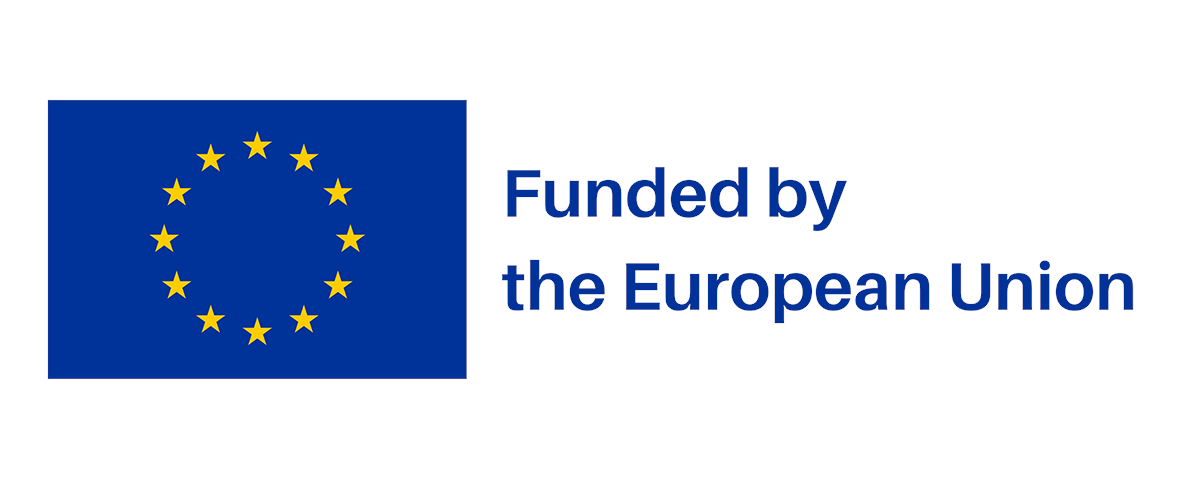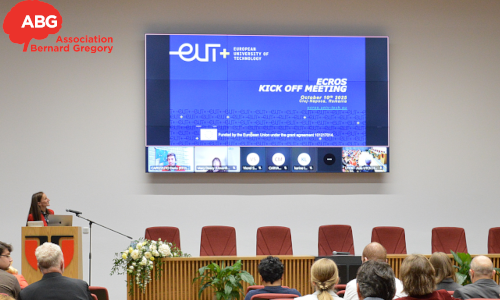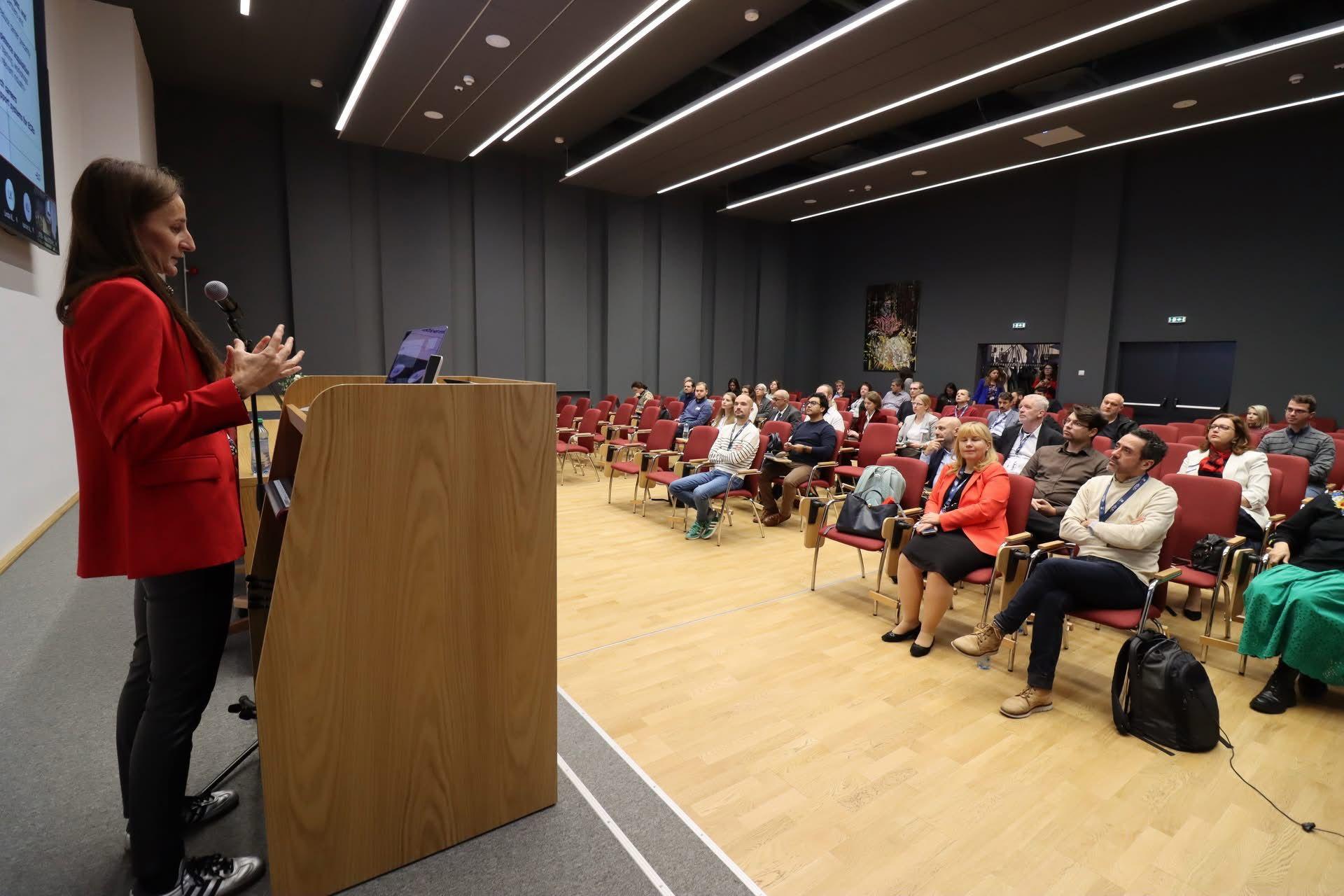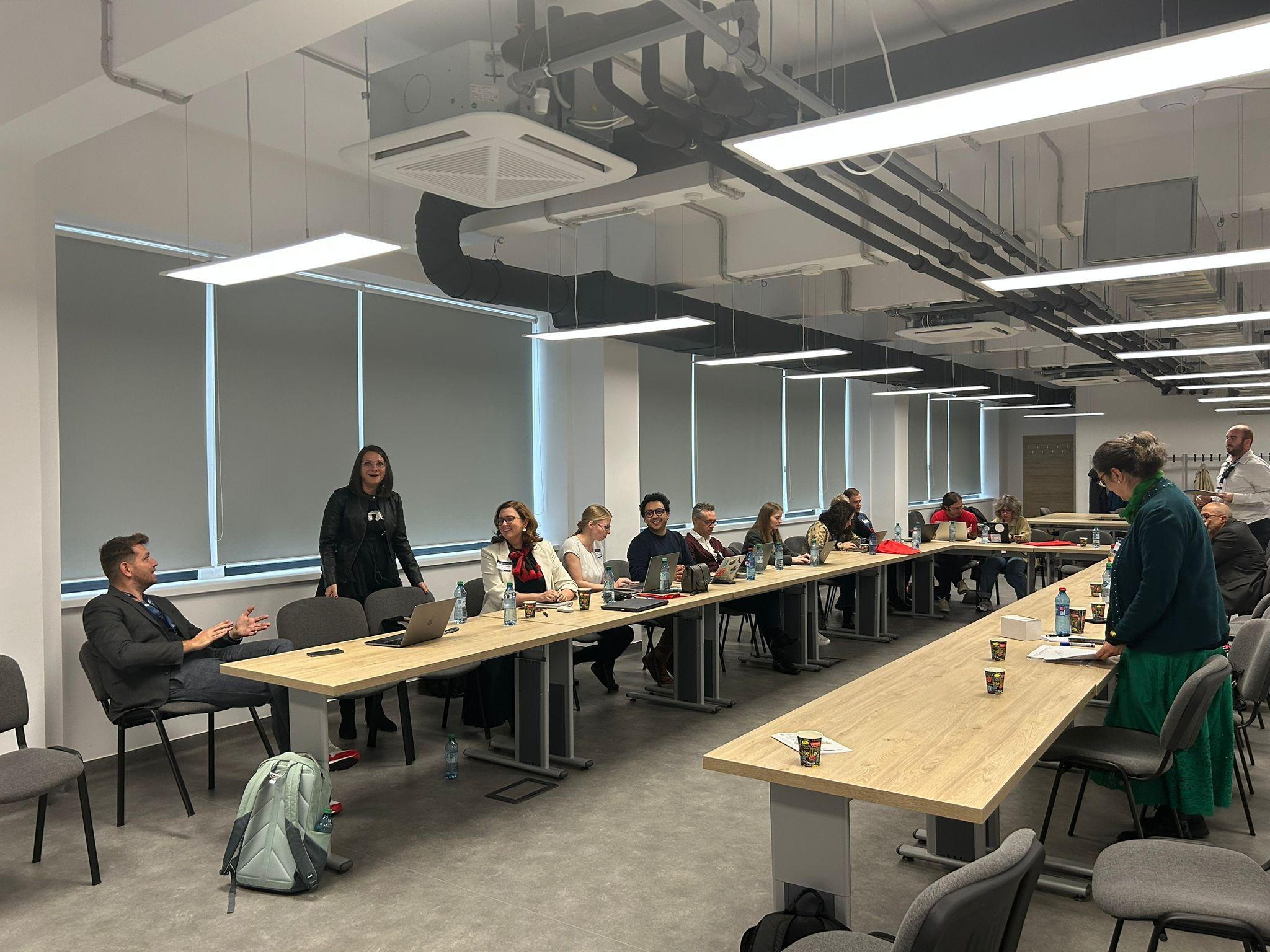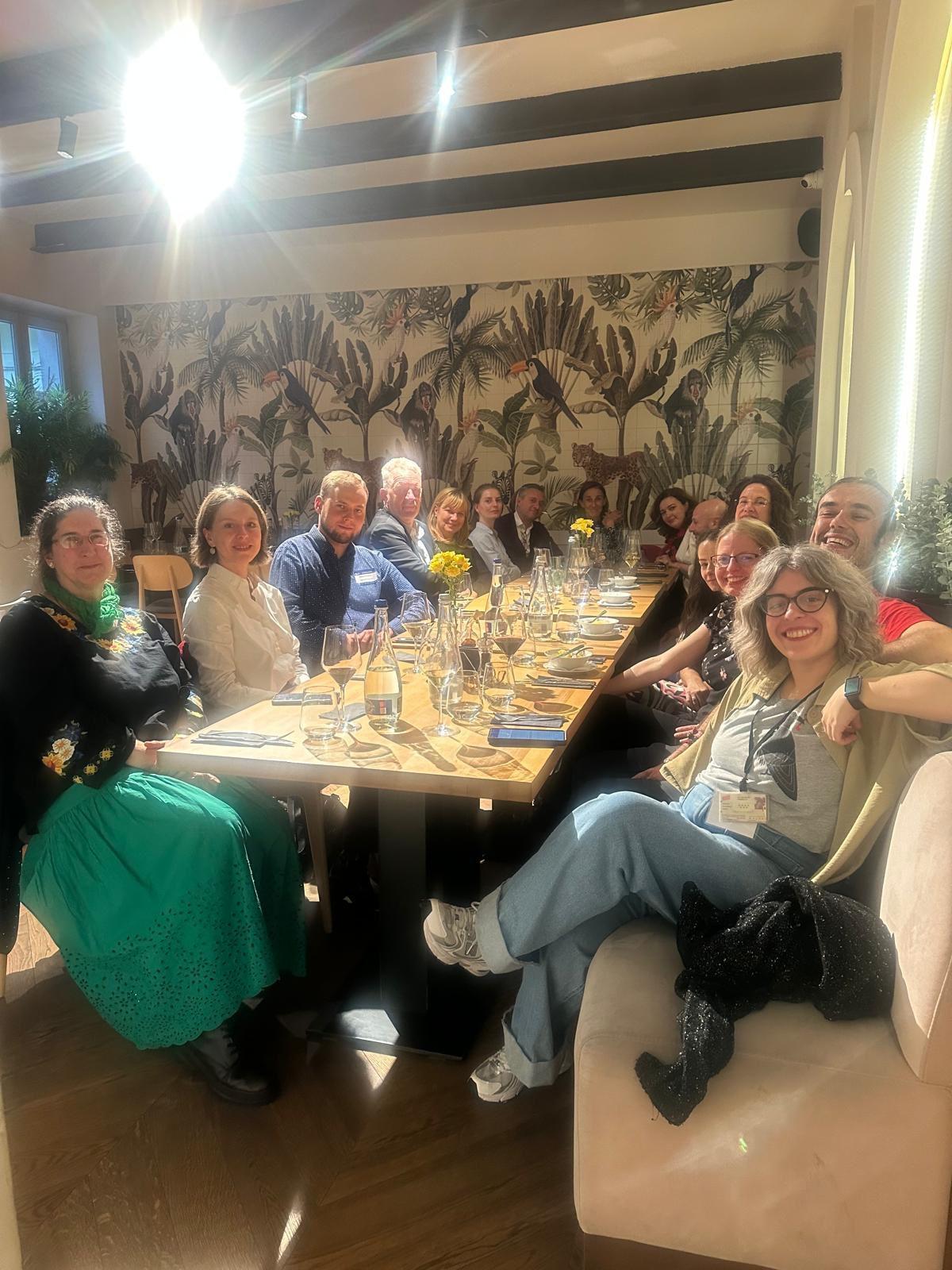The EU context: building Europe's talent ecosystem
The meeting was opened by Camelia Lemnaru, Associate Professor at UTCN and project coordinator, who introduced ECROS as a key initiative to empower early-career researchers (ECRs) from both STEM and non-STEM disciplines, by creating a European talent ecosystem bridging academia, industry, and society.
The project directly supports the ERA Policy Agenda (2022-2024) and the European Framework for Research Careers, aiming to make research paths more sustainable, attractive, and interconnected. It will be working in close collaboration and continues exchange of information with 9 other projects funded by this call to multiply efforts and work in parallel to meet the ambitious objectives.
From the European Commission's Research Executive Agency (REA), Project Officer Maria Dias Carvalho underlined the Commission's expectations for results that impact research communities, EU policymakers, as well as industry, innovators, and civil society. This goes with promoting cultural change through guidelines on how to attract and retain research, innovation, and entrepreneurial talent in Europe for better quality jobs and a better-functioning research labor market.
A high interest for the European Commission is to establish talent ecosystems with the widest participation of different stakeholders. In this context, Dario Capezzuto, European Policy Officer from the DG Research & Innovation, presented the ERA Action on Research Careers (2022-2024), encouraging institutions to adopt inclusive career frameworks and foster such talent ecosystems. During the presentation, Dario Capezzuto emphasized the need for cultural change that will enable two directional intersectoral mobility also for researchers wanting to come back to academia. More in details, the European Commission shared its vision for strengthening research careers and talent mobility in the Snapshot of EU Initiatives. Among these are the Choose Europe for Science pilot and discussions on researcher careers and mobility through MSCA conferences, such as the recent MSCA Presidency Conference in Denmark.
The ECROS project in a nutshell
ECROS (Empowering Early Career Researchers with new Opportunities and Skills) is a 3-year Horizon Europe project (2025-2028) bringing together 13 organisations from 9 EU countries, including:
- 9 universities of the EUt+ Alliance: Technical University of Cluj-Napoca (UTCN, Romania); Universidad Politécnica de Cartagena (UPCT, Spain); Hochschule Darmstadt – University of Applied Sciences (h_da, Germany); Riga Technical University (RTU, Latvia); Université de Technologie de Troyes (UTT, France); Cyprus University of Technology (CUT, Cyprus); University of Cassino and Southern Lazio (UNICAS, Italy); Technological University Dublin (TU Dublin, Ireland); Technical University of Sofia (TUS, Bulgaria)
- 2 young researcher associations: Federación de Jóvenes Investigadores / Precarios (Spain) and Latvijas Jauno Zinātnieku Apvienība (Latvia)
- 2 industry partners: Transilvania IT Cluster (Romania) and Association Bernard Gregory (France)
ECROS aims to amplify professional development for Early Career Researchers (R1-R2) by building a dynamic and inclusive talent ecosystem that combines structured career guidance, intersectoral mobility, and continuous skill development. These actions take place under the EUt+ umbrella, within the values of HR Excellence in Research, and are built upon partners' experience with goal to broaden the impact also for other European Universities.
Strategic alignment with ABG's mission
ABG's activities will focus on career development and industry cooperation. Building on its experience in researcher training, mobility support, and career transition on international level for more than 15 years, ABG contributes to:
- Career guidance methodologies
- Training content for intersectoral employability and knowledge valorization
Through these activities, ABG reinforces its longstanding mission to serve as a bridge between academia and enterprise, promoting smoother researcher transitions across sectors and countries.
The official website of the project is now online and will serve as the project's central hub for updates, events, and open resources. Do not hesitate to check it or follow the project's social media channels (available soon).
Funded by the European Union under Grant Agreement No. 101217014.
